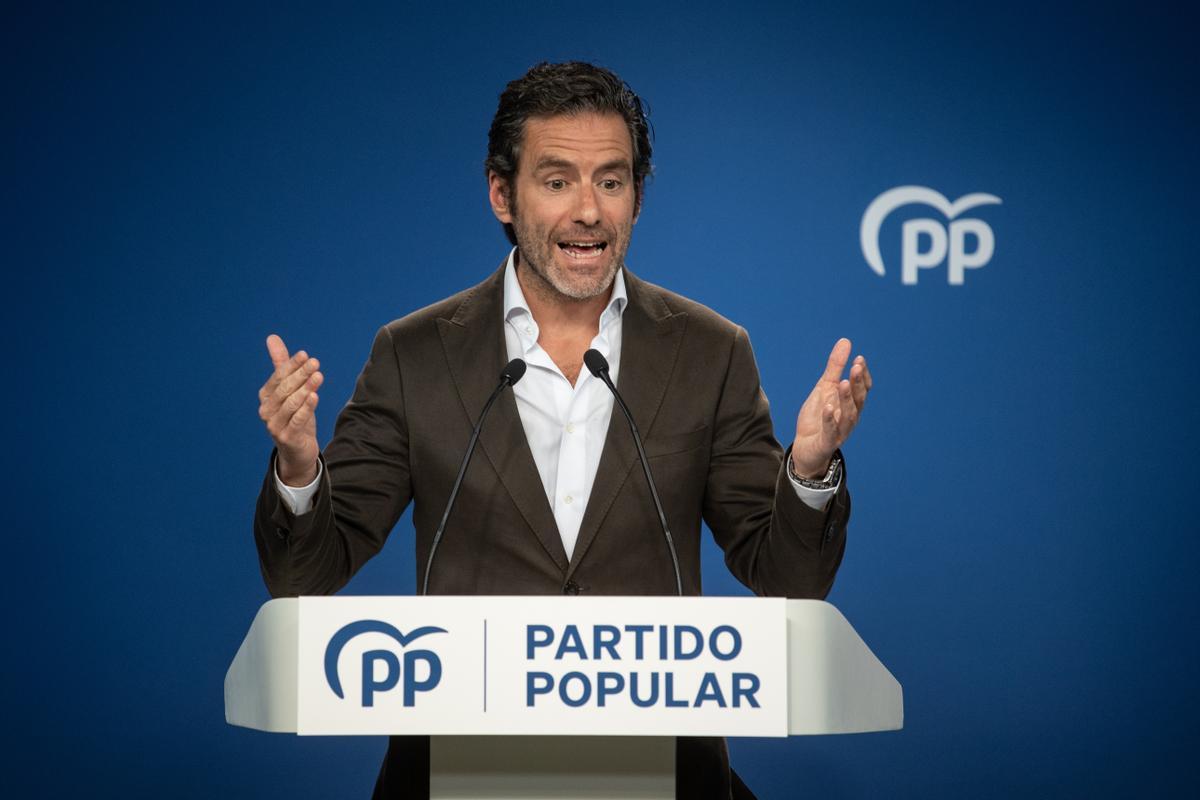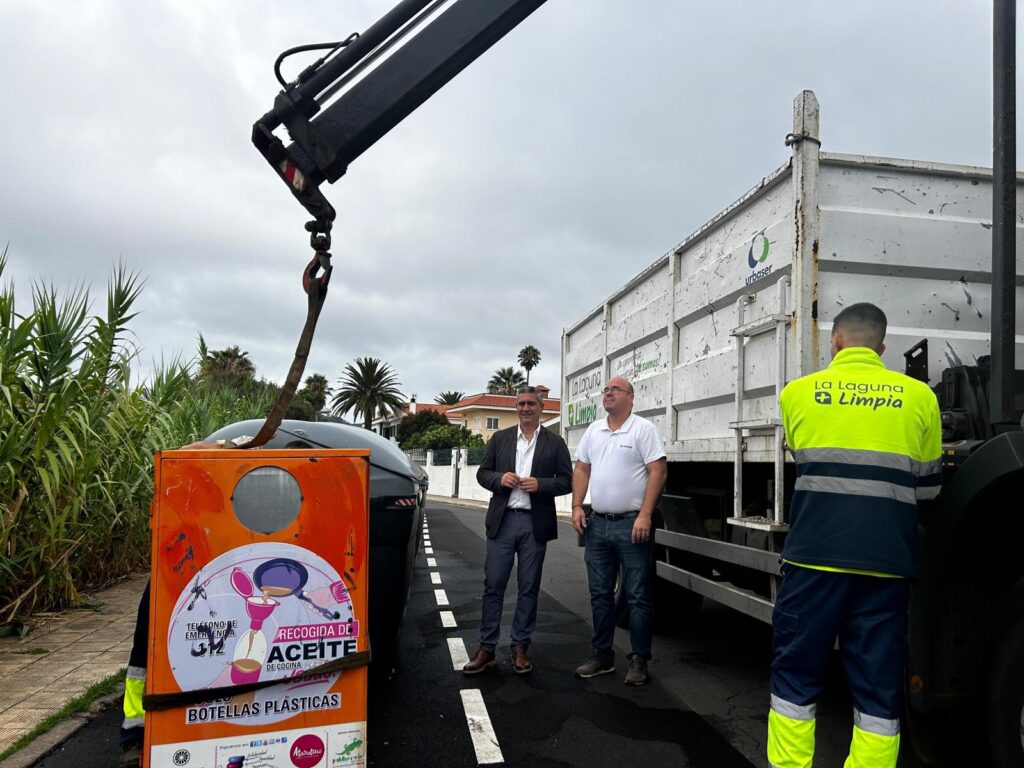Less than 24 hours before the crucial meeting between the central Government and the autonomous communities to address the distribution of a portion of the more than 5,600 unaccompanied migrant minors currently hosted by Canary Islands among the rest of the autonomous communities, the PP still does not clarify their position precisely, nor the one that the representatives of the governing territories will defend. They maintain that these communities will be “supportive” of the situation in the Archipelago, but they reject the principle of mandatory distribution contained in the proposed reform of the immigration law agreed upon by the governments of the Canary Islands and the State, arguing that many of them already have overwhelmed reception systems.
The spokesperson for the national party leadership, Borja Sémper, endeavoured this Tuesday to convey a message of understanding about the need for relief on the emergency situation in the Canary Islands but insists on holding the central Government responsible for that situation, and demands a response from them, especially to guarantee resources and funding to cope with the new admissions by the other communities, for which he requested a “contingency fund” without specifying an amount. However, he reiterates that the system cannot be “imposed” and considers that some regions must stay out because they no longer have the capacity to handle new placements.
The senior member of the Popular Party repeated tirelessly, as did all the party leaders and officials of the governing communities who made public statements, that the Government is “distributing migrant minors as if they were express parcels”, emphasizing what they consider a complete absence of migration policy. Based on these criticisms, the party attempts to explain its position at the Sectoral Conference on Childhood and Adolescence taking place this Wednesday in Tenerife, almost justifying in advance their rejection of the proposed legal reform and obviously the mandatory distribution of boys and girls currently under the guardianship of the Canary Islands.
Up to the limit
[–>
Sémper explained that “in general”, the position of the party and the regions it governs will be that “territories can care for minors up to the limit of their capacity because exceeding it would involve inhumane behaviour and would favour possible consequences related to public safety.” According to him, “when the capacity for hosting is exceeded, it is the Government’s responsibility to provide the necessary means and management.” “We are supportive, but not of this government but of the Canarians who are overwhelmed. We will defend our regional presidents against the pressure of a Government that, as always, arrives late,” he highlighted.
In the same vein, he pointed out that “all the Presidents of the PP lead hosting territories and are supportive, but no one can ask them to offer more than they have,” and that “the PP has been aware of the critical situation in the Canaries, but anything beyond our capacity for hosting, it is the Government that must guarantee the means and necessary formulas.” “We demand the Government to abandon cynicism and imposition and to take advantage of the sectoral conference to agree and not to impose a distribution system in line with the maximum capacities of the centres of the autonomous communities.”

PP spokesperson Borja Sémper during a press conference following the meeting of the PP Steering Committee, at the PP headquarters, on July 9, 2024, in Madrid (Spain). PP spokesperson Borja Sémper has assured today that the CCAA of his party will go to the Sectoral Conference with the proposal that they can “attend to minors to the limit of their capacity”, but has outlined a series of conditions such as “a contingency fund with sufficient money to provide the autonomous communities with personal, material, technical and economic means to address the serious situation of minors”. These statements have been made after Vox has warned the PP that it will break the autonomous pacts if it does not prevent this distribution of migrant minors. 09/07/2024 / BORJA SÉMPER;Alejandro Martínez Vélez;category_code_new / Alejandro Martínez Vélez
Asymmetrical Position
[–>
In any case, Sémper did not speculate on the final outcome of the summit on Wednesday in Tenerife, and even claimed not to know exactly what the autonomous communities would have to vote on regarding the proposed reform of the immigration law. “The position is
asymmetrical in Spain, it depends on each community, which has different conditions,” said Sémper, and it is in the Tenerife forum where “the circumstances of each are put on the table.” The distribution, in any case, has always been based on indices ranging from the current reception percentage of each community to per capita income, population, and other criteria. Ultimately, the PP believes that the issue in the Canary Islands is related to the “poor migration management” of the Government of Pedro Sánchez, and not with the overflow of reception resources on the Islands, rejecting that the autonomous communities themselves, regardless of the assistance they receive from the State, will have to increase their current capacities to receive more migrant minors.
In the same vein, the party leadership ignored the demand expressed a few hours earlier by the President of Ceuta, Juan Jesús Vivas, in statements to the Ser network, calling for a “State vision” and the “support” of the PP and its territories for the reform of the immigration law.
Vivas stated that “the PP should support this reform as long as it responds to a structural and effective measure to solve the problem”, arguing that the new regulation should not only contain a “binding distribution” of minors, but also be “automatic” to address the “unsustainable situation” of territories such as Ceuta and the Canary Islands. According to the Ceuta leader, it is urgent to address this situation and he has urged to “enter into a process, immediately, of negotiation and agreement so that the measure comes out as we all intend”. However, when asked about these statements, the Génova spokesperson denied that Vivas defended the mentioned reform in them, ensuring that he had only demanded that relocations “be done with the necessary conditions and requirements”.
Sémper states that the PP will not accept the “blackmail” from Vox to break their regional agreements
[–>
Regarding Vox’s threat to break the pacts with the PP in the five regions they govern together if the conservatives accept new intakes in those regions, Sémper stated that “we are not impressed by Vox’s bluffs, nor do we feel pressured by the government’s threats”. “They will see what they do, but with us, the bluffs and threats don’t work, and from there each will assume their responsibilities,” said the popular spokesperson.

MADRID, 09/07/2024.- The spokesperson for VOX in Congress, Pepa Millán during the press conference held in the Lower House, this Tuesday. EFE/ Fernando Alvarado / FERNANDO ALVARADO
Vox reiterates its threat
[–>
In this regard, it is worth noting that Vox, through its spokesperson in Congress, Pepa Millán, insisted that “those agreements” with the PP “are not a joke or a blank cheque” and that “at this point, what Mr. Feijóo says (regarding minors) is irrelevant because one day he says one thing and the next day he says another”. That is why they consider that “what matters to us is what the regional presidents do”, and that “if they yield to Sanchez’s pressure and become collaborators” in distributing minors, “we will consider those governments broken”.
[–>
On the other hand, several territorial leaders of the PP also expressed on Tuesday their willingness to show “solidarity” with the Canary Islands, but maintaining their reluctance to mandatory relocation and without specifying what their respective representatives would do at the sectorial conference, always putting their criticisms of the central government’s migration policy first. The Minister of Social Inclusion for the Andalusian Government, Loles López, has requested “funding and time” to seek the resources to care for the minors, and said that she would go to Tenerife “with the commitment to make an additional effort. On his part, the President of Castilla and León, Fernando Fernández Mañueco, stated that this community, one of those threatened by Vox with breaking the pact, assured that “this is a welcoming and supportive land” and that “no one should doubt that we will rise to the occasion”, without specifying further.
Subscribe to proceed with reading
















